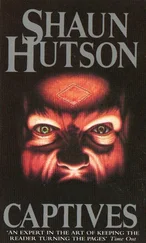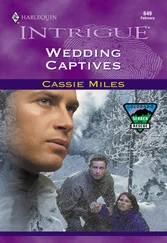Norman Manea - Captives
Здесь есть возможность читать онлайн «Norman Manea - Captives» весь текст электронной книги совершенно бесплатно (целиком полную версию без сокращений). В некоторых случаях можно слушать аудио, скачать через торрент в формате fb2 и присутствует краткое содержание. Год выпуска: 2014, Издательство: New Directions, Жанр: Современная проза, на английском языке. Описание произведения, (предисловие) а так же отзывы посетителей доступны на портале библиотеки ЛибКат.
- Название:Captives
- Автор:
- Издательство:New Directions
- Жанр:
- Год:2014
- ISBN:нет данных
- Рейтинг книги:3 / 5. Голосов: 1
-
Избранное:Добавить в избранное
- Отзывы:
-
Ваша оценка:
- 60
- 1
- 2
- 3
- 4
- 5
Captives: краткое содержание, описание и аннотация
Предлагаем к чтению аннотацию, описание, краткое содержание или предисловие (зависит от того, что написал сам автор книги «Captives»). Если вы не нашли необходимую информацию о книге — напишите в комментариях, мы постараемся отыскать её.
Captives
This is a moving account of a country shaken by communism and anti-Semitism and haunted by recent atrocities, from "a distinguished writer whose vision of totalitarianism is close to Kafka's cloudy menace, universal yet internalized" (Richard Eder,
).
Captives — читать онлайн бесплатно полную книгу (весь текст) целиком
Ниже представлен текст книги, разбитый по страницам. Система сохранения места последней прочитанной страницы, позволяет с удобством читать онлайн бесплатно книгу «Captives», без необходимости каждый раз заново искать на чём Вы остановились. Поставьте закладку, и сможете в любой момент перейти на страницу, на которой закончили чтение.
Интервал:
Закладка:
You felt the conversion’s beginning. The obstacles that stood in your way would have to be reinforced to keep you at a distance, far from the center of the earthquake, from everything except the shadow’s oblique passage through the long corridor. You should remember the dead man, place that memory in front of you, so his cowardly, tired, parental face can defend you with his death, the final escape. Until the days when the recollection of the lost one — that last powerless despair — becomes a lamentation full of longing, and you will be able to think of them together. The dead man’s final revenge on the threshold of becoming unforgettable: he forced you to wait for your treacherous new ally, being swept away by the stranger.
Yesterday, a year ago — which is to say “once upon a time” — the dead man would have to be brought back to life, as a warning to the man still living, to understand his kinship with a hypothetical, unseen parent, at least for now, when you fling the shield of an absent corpse in his face, so that he can recognize himself quicker, defend himself or run away, so that he can see his own resemblance, and while there is still time, run away from the weakness that may be his fate.
Father is still tall — this thin, careless, negligent, weak man with elongated hands who crosses the cool corridor of bygone, youthful days, spending evenings in his room absorbed in his books (whitened by the lampshade), holding them with nervous fingers. His face is handsome, full of lunacy.
Difficult, tiring evenings: he hangs over his little girl like the burden of damnation.
Suffocated by loss, wounded by incurable guilts, no longer able to find his rhythm, he tried everything and nothing in those postwar years. His breath is like the lazy, dusty city’s. It stinks of death and hard work. He would like to live in an empty house somewhere in undulating uplands, disentangling trees over crisscrossed streets.
There in an enclosure of nights with gusts and gales where the dead meet the living to exchange places, where you can strike a bargain with the insomnia of the little girl from back then, he returns, leaves, returns, pursues, alienated from himself, wanting to hear his daughter’s laugh again. Maybe he would have arrived at the other end of the country and would have met a son — a fervid and reclusive son, if there had been time for such deluxe forms of hopelessness. But there wasn’t.
The war left him dazed, as though he had forgotten how to return to the rest of humanity: thoughtless, careless with words, indifferent to songs, flags, slogans, or prosecutors, burdened by noises, and mistrustful and deaf to the promises of spies and interrogators, silenced by their tiresome, monotonous exaltation, as if he had landed among them by mistake, ready to flee at random, to anywhere else, to nowhere. In their company, his face contorted with memories and hesitations, he collapsed into laziness and became odd and defiant. . they cast him aside like a tiresome phantom, a suspect that didn’t even deserve a trial.
The tall, nearly transparent Captain passed through layers of exile, a jailbird only seeing a small square of sky, an outline of color, changeable with the hours. He had grown used to the reduced landscape. Enclosed in the damp tranquility of narrow spaces, his gaze had fallen into the square of sky, into the realm of sleep. He’d been left to wait for his sentence. Then they threw him back, to transform him into what he could no longer become. After that, he avoided talking about the pitch-dark cells just as he had avoided talking about the war. The rupture of his being was barely the beginning of the expiation of his guilt or non-guilt. He threw himself into heavy drinking again, became exhausted, happy, tired of feeling powerless and ashamed, and spent near-catatonic days in silence. He would say “I’m going,” and then later he’d say “I’ve come,” and reprises of apathy would follow, cut by Sunday walks. . rarely illuminated by startled reactions, dizzied by the sun, by words: satire, station, bridge, and promises, particles, pigeons.
The young man in the familiar blue shirt quickly crosses the corridor again. You linger there. He hurries or runs carelessly. Sometimes his hands squeeze his throat. . and you saw the jump rope. You pulled him down. The cord fell over the waste of childhood, so you turned him over, rolled the jacket under his back, and you went on repeating the movements you’d learned for saving the drowned. It was clear then: Father had died. No daughter had ever been born. He was a lifeless puppet worked by an adolescent female stranger. His livid face sought resurrection from a thread of blood that oozed from the corner of his lips. He would writhe for weeks until his unwanted rebirth.
The agony of endless weeks: liquefied gestures, milky mornings, dispensing with objects, people — annihilating their movements, swallowing their haste, rarifying their muddled signs. Work shift one, shift two, shift three, shift one, shift two, again, shift three: Wednesday’s day and night had passed. Thursday evening he kept laughing. That was the final vacillation, the hesitation of the finger on the trigger, the rope that had yet to lengthen into a knot, the poison still licking the bottom of the glass — the last moment of weakness. By then, though, he was waiting for the end: his plunge into the industrial melting pot. No one could bring him back from that sea of flames. A final embrace: ash, smoke — ignition.
The freezing walls burn; your fingers tremble. And the stranger passes hastily toward nowhere, once more through the dark, silent corridor. Still young, unapprised, prisoner of increasingly difficult, deadening mornings: Thursday, Monday again, Tuesday, Wednesday, an engulfing fog. Years of delay, until finally one Wednesday, one Thursday, at around ten o’clock, amidst the tumult of spies, the rustle of papers, the whistle of the telephone, the cadence of the typewriters, everything becomes unbearable: alone, a solitary man in the scorching rain faces his destiny, his reconciliation.
The young man goes by. He doesn’t suspect he’s being watched. He hasn’t seen you, embittered in your mourning clothes, cursing the way people go cheerfully about their games as if skipping a rope made of days. You are an outsider to their appetites and pleasures, discarded among books that enchant and lie, lie and enchant, just like the grownups, the cowards, the runaways, the idiots: those paternal braggarts — those cheaters.
Frightened again by the power of death that brings your hand to your throat (withdrawn quickly, uselessly, too late), you come to yourself. There you remain, resigned to waiting. The stranger doesn’t see you. He can’t see the smooth wall of this vestibule where a blizzard of waiting scorches your fingers. Hidden by the shadows of the corridor, you repeat the gesture spasmodically and quiver, startled as if the intruder of tomorrow had snuck between the deceased past (as well as the past deceased) and the daughter deserted by the present. In a rush, the stranger goes by, blind as a forgetful ghost in an abandoned corridor. But he’s not like you. He hasn’t held a suicidal father in his arms, and if he had, it would have meant that he was retrieving his parent from the alienation that separated them.
Whatever we think, whatever we do, we drag them behind us. We deny, curse, forget them. Their ballast oppresses us, bends us, joins us. Time is nothing in this equation. After fifteen years you find yourself repeating the verbal tic of the dear departed, and the same pain in your left leg torments you the way it did him. Maybe your fictive brother repeats the words of his absent shadow, too.
Back when you had to wear schoolgirl pigtails with mournful black bows, which you hated so much you chopped them off, the stranger was a young Party star, the wonder kid of his little town. The offspring of correct, zealous parents, you were on the way down: even then you shrank into yourself. He was rising, though, unknowing, blind, burning with big slogans he believed were his own, ready to denounce his parents for any deviation. He had no hesitations, and he would have been ready to give you away if an intransigent code demanded it, you , with your politically dubious parent, you and all of those like you — or the hypocrite Sebastian Caba, who used his winning cordiality to hide the secret of his dubious parents, relocated as enemies from the banks of the Danube on the basis of who knows what varying suspicions. He’d have sent all of you down the river, with your cunning loser airs, ready to sneak into the crowd, hiding behind sacrifices and towing the party line.
Читать дальшеИнтервал:
Закладка:
Похожие книги на «Captives»
Представляем Вашему вниманию похожие книги на «Captives» списком для выбора. Мы отобрали схожую по названию и смыслу литературу в надежде предоставить читателям больше вариантов отыскать новые, интересные, ещё непрочитанные произведения.
Обсуждение, отзывы о книге «Captives» и просто собственные мнения читателей. Оставьте ваши комментарии, напишите, что Вы думаете о произведении, его смысле или главных героях. Укажите что конкретно понравилось, а что нет, и почему Вы так считаете.












